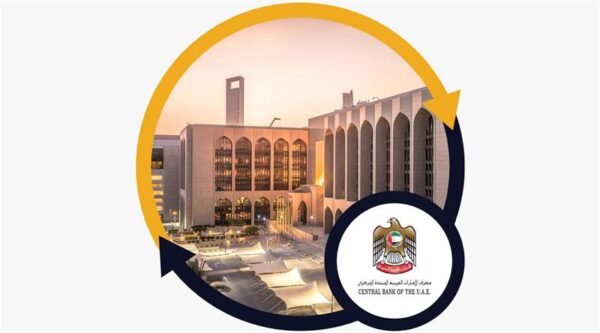Dubai is rapidly solidifying its position as a global hub for FinTech, an ascent driven by a powerful combination of strategic government initiatives, robust infrastructure, and a dynamic regulatory environment. From cutting-edge digital infrastructure to a dedicated push for technologies like blockchain and AI, Dubai is actively sculpting the future of finance. Coupled with a business-friendly regulatory framework and significant investment inflows, it is clear why FinTech leaders and start-ups are increasingly choosing Dubai as their home base. The upcoming Dubai FinTech Summit, organized by the Dubai International Financial Centre (DIFC), stands as a testament to Dubai’s commitment to cultivating a vibrant FinTech ecosystem and its ambition to lead in global financial innovation. This article explores the key regulatory and strategic factors making Dubai a fertile ground for FinTech advancement.
A Multi-Layered Regulatory Landscape
Understanding Dubai’s unique regulatory landscape is key for any FinTech operating or looking to establish a presence here. The UAE operates a multi-layered system with different regulators having distinct, and sometimes overlapping, authority across various jurisdictions.
- Onshore UAE: This includes the territories of the seven emirates, along with economic free zones (excluding the financial free zones). Key regulators here are the Central Bank of the UAE (CBUAE), the Securities and Commodities Authority (SCA), and the Virtual Assets Regulatory Authority (VARA).
- Offshore UAE: This comprises the financial free zones, specifically the Dubai International Financial Centre (DIFC) and the Abu Dhabi Global Market (ADGM). These are separate jurisdictions with their own standalone rules, largely based on English common law. The regulators here are the Dubai Financial Services Authority (DFSA) in the DIFC and the Financial Services Regulatory Authority (FSRA) in the ADGM.
This structure provides a potentially advantageous landscape, allowing FinTechs to select the regulatory environment that best aligns with their business models.

Key Frameworks and Initiatives Facilitating Innovation
Dubai’s rise is underpinned by specific strategic initiatives and regulatory frameworks designed to nurture FinTech growth.
- Strategic Government Vision: Visionary plans such as the Dubai Economic Agenda (D33), We the UAE 2031, and the exemplary UAE Centennial 2071 are specifically aimed at positioning the nation as a leader in digital innovation across sectors like FinTech and Blockchain.
- Financial Free Zones as Innovation Hubs:
- The DIFC is a central part of Dubai’s FinTech ecosystem, offering a conducive environment. It attracts international companies through a bespoke legal system, tax incentives, and a supportive regulatory framework.
- Both the DIFC and ADGM host dedicated innovation hubs: the DIFC Innovation Hub and the ADGM Regulation Lab (RegLab). These hubs connect start-ups with institutions, investors, and regulators. They also provide access to extensive networks, marketing and PR exposure, regulatory frameworks, regulatory sandbox schemes, and networking events. The DIFC Innovation Hub’s objective is to “raise unicorns”.
- Regulatory Sandboxes: These are crucial tools for fostering innovation in a controlled manner.
- The DFSA Innovation Testing Licence Programme in the DIFC allows firms to test innovative products, services, and business models under a restricted financial services licence. It offers temporary modifications to existing rules while maintaining close supervisory oversight. The DFSA has published an explainer guide to make this process clear.
- The ADGM RegLab offers a similar regulatory sandbox environment where requirements are applied based on business model and risks.
- The CBUAE also has a regulatory sandbox, recently enhanced by the Sandbox Conditions Regulation (April 2024), permitting testing of innovative financial business models and solutions for a duration determined by the CBUAE without requiring a full licence upfront. This aligns with international best practices.
- Progressive Regulatory Frameworks: The UAE has implemented frameworks specifically for emerging FinTech areas.
- Virtual Assets: The establishment of VARA in Dubai (excluding DIFC) in 2022, with a comprehensive licensing framework rolled out in 2023. VARA regulates activities like virtual asset exchanges. The SCA also issued guidelines for virtual assets. In ADGM, the FSRA has a Virtual Asset Framework. The DFSA in DIFC regulates virtual assets and connected financial services. These frameworks cover various activities, including virtual asset issuance, trading, custody, lending, and derivatives. While some crypto-related lending and derivatives are regulated, DeFi is not specifically governed. Non-fungible tokens (NFTs) are also addressed, with differing treatment across jurisdictions.
- Open Banking/Finance: The CBUAE’s Open Finance Regulation (2024) introduces an Open Finance Framework where licensed financial institutions must share customer data (with consent) and allow transaction initiation. The UAE is highlighted as the first country globally to implement a consolidated trust framework and centralised API hub for banking and insurance. In DIFC, the DFSA amended its rulebook for open banking services. In ADGM, the FSRA introduced a framework for Third Party Financial Technology Services.
- Payment Services: Regulated by the CBUAE in “onshore UAE” under various frameworks like the Large Value Payment Systems Regulation, Retail Payment Systems Regulation, and Retail Payment Services and Card Schemes Regulation (RPSCS Regulation). Cross-border payments are regulated by the RPSCS Regulation and facilitated by systems like AFAQ and Buna. The FSRA and DFSA also regulate money services in the financial free zones. The CBUAE’s Payment Token Services Regulation (June 2024) specifically licenses and supervises digital payment services including payment tokens (stablecoins).
- Focus on Advanced Technologies: Dubai is actively shaping the future by promoting technologies like Blockchain and AI.
- Dubai’s Universal Blueprint for Artificial Intelligence includes the DIFC’s AI and Web3 incubator.
- Abu Dhabi’s Digital Strategy 2025-2027 aims for a fully AI-powered government.
- Financial Infrastructure Transformation Programme (FIT Programme): A CBUAE federal initiative accelerating digital transformation across the financial sector through nine strategic initiatives, including CBDC, Open Finance, an Innovation Hub, and Instant Payments. Launched in 2023, it has significantly influenced the regulatory agenda.
- Dubai Cashless Strategy: Launched in 2024, this initiative targets 90% cashless transactions by 2026, emphasizing secure digital payments, AI use for transactions, and robust infrastructure. This presents clear opportunities for payment-focused FinTechs.
A Thriving Ecosystem and Market Opportunity
Dubai offers more than just regulation; it provides a thriving ecosystem and significant market opportunities.
- Strategic Location: Dubai’s location as a gateway between East and West provides unparalleled access to the Middle East, Africa, and South Asia (MEASA) region, an area with significant potential for financial inclusion and innovation.
- Market Growth: The UAE’s FinTech market alone was valued at USD 3.16 billion in 2024 and is projected to reach USD 5.71 billion by 2029, showing rapid growth.
- Surge in Companies and Investment: The number of active FinTech companies in the UAE has increased significantly, with approximately 61.7% headquartered in Dubai. FinTech is a dominant force in the UAE’s venture capital ecosystem, accounting for 32% of total funding volume in Q1 & Q2 2024, highlighting growing investor confidence.
- Tech-Savvy Population: The UAE population is tech-savvy and eager to embrace digital banking, crypto, and cashless payments, providing a ready market for FinTech solutions.
- Ease of Business: Setting up a business is made straightforward, particularly within free zones offering tax perks and easy licensing.
Navigating the Landscape
While the environment is supportive, FinTechs must also navigate the complexity of the multi-jurisdictional system and the heightened focus on Anti-Money Laundering (AML) and Counter-Terrorist Financing (CTF) compliance. The UAE’s removal from the FATF grey list in 2024 underscores its strengthened efforts in this area, leading to increased enforcement actions. FinTechs must implement comprehensive compliance programmes, ideally integrating AML considerations from the outset. Regtech solutions are also being utilized by regulators to help manage growing AML requirements.

Examples of FinTech Companies in the UAE
The thriving environment has given rise to numerous innovative FinTechs:
- Mamo Pay: Offers digital payment solutions for businesses and individuals.
- Tabby: A leading Buy Now, Pay Later (BNPL) provider in the MENA region.
- Ziina: The UAE’s first peer-to-peer payment app, which has secured a Stored Value Facility Licence from the CBUAE.
- Invest Sky & Baraka: Platforms offering investment solutions and access to global markets, catering to modern investors.
- Huspy: Specializes in simplifying the home financing process.
- Sarwa: A robo-advisory platform providing automated investment services. This aligns with the growing use of robo-advisers by legacy players and expected future regulation.
- Beehive: A digital SME lending platform connecting businesses with investors.
- NowMoney: Provides digital banking solutions focusing on financial inclusion for low-income migrant workers.
- PayBy: Offers comprehensive digital payment solutions including QR code payments and mobile wallets, contributing to the cashless ecosystem.
Dubai’s strategic government initiatives, supportive regulatory frameworks, state-of-the-art infrastructure, significant investment, and advantageous location have firmly established it as a global powerhouse for FinTech innovation. The city is not merely observing the future of finance; it is actively building it, providing FinTech companies with the resources and space needed to thrive. The Dubai FinTech Summit serves as a crucial platform for the ecosystem, bringing together industry leaders, regulators, investors, and innovators to shape the next era of FinTech evolution.
For companies seeking to navigate this dynamic environment and capitalize on the opportunities, expert guidance is invaluable. Astravise Services is a management consulting company led by seasoned CFOs and CHROs, and we empower businesses to enhance financial performance, secure funding, and navigate complex financial landscapes. With a focus on strategic business growth and profitability through effective execution of innovative solutions, we support clients with financial and advisory services.
We are pleased to share that Venkatesh Bhat, our Managing Director, will be attending the upcoming Dubai FinTech Summit. Drop a message to him on LinkedIn or his email [email protected] to learn more about how Astravise Services can support your FinTech company’s growth journey.





